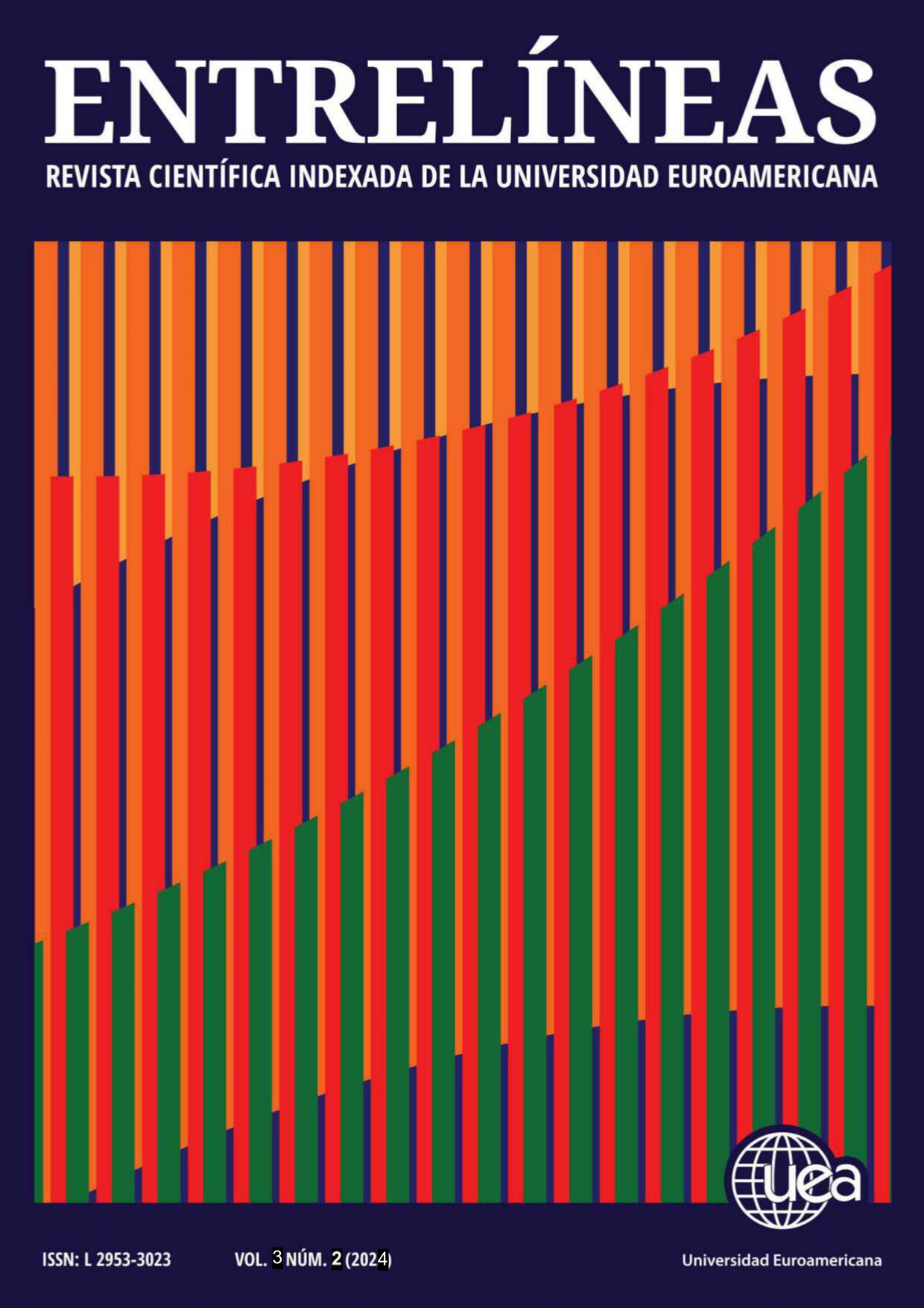Mindfulness Model in Human Resources: addressing organizational change from a humanistic perspective
DOI:
https://doi.org/10.56368/Entrelineas323Keywords:
organizational change, professional competence, human resource development, labor productivity, labor sociologyAbstract
The emergence of new skills has radically transformed the labor landscape and expectations towards human capital. These competencies demand new approaches or learning structures, where reskilling is integrated, both for current and future employees. From this necessity arises the initiative to develop a model that can benefit any organization considering implementing a reskilling strategy, aiming to update employees to efficiently perform in different roles and remain competitive in the job market. With the aim of presenting a mindfulness model designed to address organizational change from a humanistic perspective, a qualitative, descriptive, and non-experimental study was conducted. Data collected between 2000 and 2020 organized the study's background, while data from 2022 to 2024 were used to develop the model. Techniques such as surveys, documentary analysis, and focus groups were employed to gather information on workplace perception, change needs, and the utility of reskilling. The results revealed the four main phases that compose the model, highlighting the importance of open communication, personalized training, adaptation to change, and understanding of organizational change in the approach proposed by the Mindfulness Model. Although still in the process of development and improvement, it is expected that by implementing this model, organizations can experience improvements in efficiency, effectiveness, and harmony within their teams.
Downloads
References
Baer, R. A. (2003). Mindfulness training as a clinical intervention: a conceptual and empirical review. Clinical Psychology: Science and Practice, 10(2), 125. https://doi.org/10.1093/clipsy/bpg015
Canseco Melchor, F., & Ojeda García, A. (2016). Comunicación laboral: una propuesta estratégica para facilitar el quehacer de los equipos de trabajo. Enseñanza e Investigación en Psicología, 21 (2), 183-194. https://www.redalyc.org/pdf/292/29248181009.pdf
Caracheo, F. (2002). Modelo educativo (propuesta de diseño). CIDET.
Cavanagh, K., Strauss, C., Cicconi, F., Griffiths, N., Wyper, A., & Jones, F. (2013). A randomised controlled trial of a brief online mindfulness-based intervention. Behaviour Research and Therapy, 51(9), 573-578. https://doi.org/10.1016/j.brat.2013.06.003
Creswell, J. (2003). Qualitive inquiry and research design: among five approaches. SAGE.
Creswell, J. D. (2017). Mindfulness interventions. Annual Review of Psychology, 68, 491-516. https://doi.org/10.1146/annurev-psych-042716-051139
Deming, D., & Kahn, L. B. (2018). Skill requirements across firms and labor markets: Evidence from job postings for professionals. Journal of Labor Economics, 36(S1), S337-S369. https://www.nber.org/system/files/working_papers/w23328/w23328.pdf
Dimidjian, S., & Segal, Z. V. (2015). Prospects for a clinical science of mindfulness-based intervention. American Psychologist, 70(7), 593. https://doi.org/10.1037/a0039589
Dumay, J., & Rooney, J. (2011). Dealing with an ageing workforce: current and future implications. Journal of Human Resource Costing & Accounting, 15(3), 174-195. https://doi.org/10.1108/14013381111178578
Garner, B. J. & McKay, E. (2007). Learning reinforcement strategies for a changing workforce. In Proceedings of the sixth conference on IASTED International Conference Web-Based Education, 2, 194-199. https://dl.acm.org/doi/10.5555/1323159.1323194
Ho, Y. H., Wang, C. K., & Lin, C. Y. (2022). Antecedents and consequences of green mindfulness: A conceptual model. International Journal of Environmental Research and Public Health, 19(11), 6367. https://doi.org/10.3390/ijerph19116367
Jasińska, M. (2020). Synergy-an enhancement of learning organisations undergoing a change. Entrepreneurship and Sustainability Issues, 7(3), 1902. http://doi.org/10.9770/jesi.2020.7.3(31)
Kaur, H., & Krishna, C. (2020). Re-Skilling HR in Changing Business Scenarios (A Literature Review). ANWESH: International Journal of Management & Information Technology, 5(1), 29-34. https://www.researchgate.net/publication/348621072_Re-Skilling_HR_in_Changing_Business_Scenarios_A_Literature_Review
Lee, Y. H., Ra, Y. S., Ball, K., & Phan, P. (2000). Adult Retraining and Reskilling in Korea and Australia. Korea Research Institute for Vocational Education and Training (KRIVET).
Mendelson, T., Greenberg, M. T., Dariotis, J. K., Gould, L. F., Rhoades, B. L., & Leaf, P. J. (2010). Feasibility and preliminary outcomes of a school-based mindfulness intervention for urban youth. Journal of abnormal child psychology, 38, 985-994. https://doi.org/10.1007/s10802-010-9418-x
Monadjemi, S. A., Olounabadi, A. A., Eimani, E., & Dastjerdi, F. (2008). E-Learning for Employees Re-Skilling in Under Developing Countries. E-Learning for Employees Re-Skilling in Under Developing Countries. The International Conference on E-Learning in the Workplace, 1-4. https://learningideasconf.s3.amazonaws.com/Docs/Past/2008/Papers/Monadjemi.pdf
Obando Changuán, M.P. (2020). Capacitación del talento humano y productividad: una revisión literaria. ECA Sinergia, 11(2), 166-173. https://doi.org/10.33936/eca_sinergia.v11i2.2254
Roemer, L., & Orsillo, S. M. (2003). Mindfulness: A promising intervention strategy in need of further study. Clinical Psychology: Science and Practice, 10(2), 172–178. https://doi.org/10.1093/clipsy.bpg020
Ruiz de Vargas, M., Jaraba Barrios, B., & Romero Santiago, L. (2005). Competencias laborales y la formación universitaria. Psicología desde el Caribe, (16), 64-91. https://www.redalyc.org/pdf/213/21301603.pdf
Sandoval Sucre, F., & Pernalete Chirinos, D. (2014). Marco de trabajo para gestionar las competencias laborales. Enl@ce: Revista Venezolana de Información, Tecnología y Conocimiento, 11(3), 11-32. https://www.redalyc.org/pdf/823/82332932002.pdf
Sandoval, C. (2002). La investigación cualitativa. Editores Arfo.
Downloads
Published
Issue
Section
License

This work is licensed under a Creative Commons Attribution-NonCommercial 4.0 International License.
You are free to:
- Share — copy and redistribute the material in any medium or format
- Adapt — remix, transform, and build upon the material
- The licensor cannot revoke these freedoms as long as you follow the license terms.
Under the following terms:
- Attribution — You must give appropriate credit , provide a link to the license, and indicate if changes were made . You may do so in any reasonable manner, but not in any way that suggests the licensor endorses you or your use.
- NonCommercial — You may not use the material for commercial purposes .
- No additional restrictions — You may not apply legal terms or technological measures that legally restrict others from doing anything the license permits.









